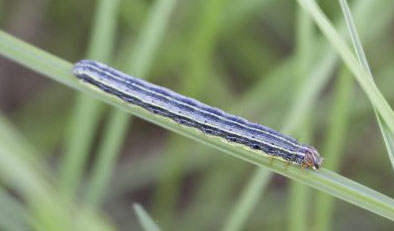By Julien Beuzelin Fall armyworms and corn silk flies are the main insect pests of sweet corn in Florida. Management relies primarily on insecticides, but the two pests represent different challenges. Fall armyworm infestations can be devastating if left unmanaged. However, several registered insecticides such as methomyl (Lannate, Nudrin), chlorantraniliprole (Coragen, Vantacor) or spinetoram (Radiant) are very effective at maintaining …
Florida Vegetable Expert: There’s Going to Be Damage Out There
By Clint Thompson South Florida’s vegetable crop sustained some damage during last weekend’s cold temperatures. It was too cold not to. Gene McAvoy, University of Florida/IFAS Regional Vegetable Extension Agent IV Emeritus, said temperatures dipped as low as 30 degrees Fahrenheit in the Immokalee, Florida area. The young watermelon plants were especially at risk. “I think watermelons that were not …
USDA RMA Hosting Listening Sessions for Fresh Market Sweet Corn Producers
Fresh market sweet corn producers are invited to participated in listening sessions with Agralytica, who is working under contract for the U.S. Department of Agriculture’s Risk Management Agency. The sessions are for fresh market sweet corn producers in areas covered by the Fresh Market Sweet Corn Dollar Plan of Insurance, as well as industry members and regional insurance representatives. Feedback …
Southern Corn Leaf Blight Now a Problem Year-Round for Florida Producers
By Clint Thompson What was mainly a fall disease problem for sweet corn producers has transitioned into a concern for growers during winter and spring production as well. Southern corn leaf blight is an issue that now concerns Florida growers year-round, mostly due to warmer temperatures, said Richard Raid, University of Florida Institute of Food and Agricultural Sciences (UF/IFAS) professor …
Sweet Corn Insect Management: Scouting Important Against Fall Armyworms
By Clint Thompson Scouting remains the main key for Florida sweet corn farmers in fending off fall armyworms this season. Julien Beuzelin, a University of Florida (UF) Institute of Food and Agricultural Sciences (IFAS) entomologist, said appropriate management of fall armyworms starts with making sure you have a problem to begin with. “For armyworms, scouting is very important because you …
Sweet Corn Prices on the Rise
By Clint Thompson Market prices for sweet corn have improved in recent weeks, and that’s good news for farmers like Tift County, Georgia’s Jaime Patrick. “The price was really cheap, and you just couldn’t move any. The demand just wasn’t there,” Patrick said. “Fortunately, the markets have picked up just a little bit. The most important part has been the …
Sweet Corn Alert: Alabama Growers Be Wary of Pests
By Clint Thompson Katelyn Kesheimer’s message to Alabama’s sweet corn producers is simple: “At this point, if your plants are thinking about silking, be prepared to spray.” The Auburn University Assistant Professor and Extension Specialist advises producers to be mindful of corn earworms and fall armyworms. Both need to be taken care of before infestations get out of control. “Corn …
The Challenges of Controlling Silk Flies in Florida Sweet Corn
By Julien Beuzelin Corn silk flies are the most damaging insects of sweet corn in southern Florida. Adults of three species(Euxesta stigmatias, Euxesta eluta and Chaetopsis massyla) are commonly observed in commercial fields where they lay eggs on sweet corn silks. Maggots feed on silks and kernels before leaving the ear and falling onto the soil surface, under which they …
What to Look for With Corn Earworm
According to a University of Florida/IFAS blog, the corn earworm is especially concerning to corn and tomato growers. It causes serious damage when it feeds on corn silk and kernels and tomato fruit. In corn, eggs are laid on silk and the caterpillar hatches and feeds on silk and kernels. In tomato, eggs are laid on leaves, flowers or fruit. …
Severe Drought in Alabama Having Little Impact on Produce
By Clint Thompson A severe drought in Mobile County, Alabama and Baldwin County, Alabama is not negatively influencing fruit and vegetable production, says Joe Kemble, Alabama Extension vegetable specialist. “Most of the veggies down there are irrigated,” Kemble said. “I don’t know anyone that doesn’t irrigate, frankly, in that area.” Irrigation is important in that area right now. In the …










